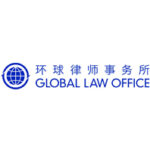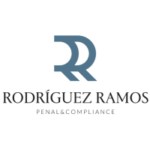-
What is the legal framework (legislation/regulations) governing bribery and corruption in your jurisdiction?
Foreign bribery is governed by the Corruption of Foreign Public Officials Act (CFPOA), which applies to all Canadian citizens, permanent residents of Canada, persons anywhere whose acts or omissions have been committed in Canada, and organisations incorporated or formed in Canada. Under the CFPOA, it is an offence to:
- give or offer a loan, reward, advantage or benefit of any kind to a foreign (non-Canadian) public official or to any person for the benefit of a foreign public official as consideration for an act or omission by the official in connection with the performance of the official’s duties/functions; or
- induce the official to use his or her position to influence any acts or decisions of the foreign state or public international organisation for which the official performs duties or functions.
The Criminal Code governs domestic bribery and corruption. Under the Criminal Code it is an offence to:
- give or offer any loan, reward, advantage or benefit of any kind to public officials (or their family members) for co-operation, assistance, exercise of influence or an act or omission in connection with any government business;
- bribe any municipal official, officer, or judicial officer; or
- provide a “secret commission” to the agent of a principal, including giving or offering a reward, advantage or benefit as consideration for doing or not doing anything related to the affairs or business of an agent’s principal, or demanding, accepting, or offering to accept such a reward, advantage or benefit, or otherwise knowingly being privy to a secret commission.
Offences involving public officials and secret commissions are subject to fines and/or imprisonment for up to five years, while offences involving officers and judicial officers may be liable to fines and/or imprisonment for up to 14 years.
Corporate liability can arise where an offence is committed with the knowledge or direction of a “senior officer”, which has been held to include individuals responsible for managing an important aspect of the activities of a business and is not limited to senior management.
Quebec is the only province that broadly addresses bribery at a provincial level through its Anti-Corruption Act. The Anti-Corruption Act establishes various offences for corruption, breach of trust, malfeasance, collusion, fraud, and influence peddling in the public sector and in the administration of justice, the misuse of public funds, and the gross mismanagement of public contracts. It also contains penalties related to hindering investigations and reprisals against whistle-blowers.
-
Which authorities have jurisdiction to investigate and prosecute bribery and corruption in your jurisdiction?
The Royal Canadian Mounted Police (RCMP), Canada’s federal police service, is responsible for investigating most white collar criminal offences, and all bribery related offenses under the Criminal Code and CFPOA. The RCMP has specific programs in place to address anti-corruption and financial crimes.
The federal Public Prosecution Service of Canada (PPSC) is an independent prosecuting authority that prosecutes federal corruption offences. The PPSC publishes guidelines for the application of the provisions of the Criminal Code that deal with remediation agreements, Canada’s version of deferred prosecution agreements.
Provincially, Crown counsel are responsible for prosecuting Criminal Code offences and other regulatory offences. In Ontario, crown counsel are part of the provincial Ministry of the Attorney General and may also act as civil counsel to other ministries. In Quebec, the Directeur des poursuites criminelles et pénales (DPCP) authorizes and directs criminal and penal prosecution on behalf of the province.
-
How is ‘bribery’ or ‘corruption’ (or any equivalent) defined?
Bribery is not specifically defined in either the Criminal Code or the CFPOA. Instead, as discussed in response to question 1 above, these statutes broadly prohibit conferring benefits to public officials under certain circumstances.
In a recent civil law dispute between private parties, a Canadian appellate court adopted the English law definition of a “bribe” as a “commission or other inducement, which is given by a third party to an agent as such, and which is secret from his principle” and that the meaning of a bribe “extends well beyond its popular connotation of a corrupt payment, to include any payment or gift made as an inducement to an ‘agent’ and not disclosed to the ‘principal’”. However, to be clear, this definition of a bribe pertains to civil law disputes between private parties and not to criminal disputes.
-
Does the law distinguish between bribery of a public official and bribery of private persons? If so, how is 'public official' defined? Is a distinction made between a public official and a foreign public official? Are there different definitions for bribery of a public official and bribery of a private person?
Yes. Canadian law distinguishes between both the bribery of a public official and the bribery of private persons, and the bribery of a public official and the bribery of a foreign public official.
The Criminal Code addresses frauds related to domestic government and municipal corruption. Section 121 prohibits conferring benefits to officials, and section 123 prohibits conferring benefits to municipal officials. The Criminal Code defines an “official” as a person who:
- holds an office, or
- is appointed or elected to discharge a public duty.
An office is defined as:
- an office or appointment under the government,
- a civil or military commission, or
- a position or an employment in a public department.
Section 426 of the Criminal Code is the main prohibition against domestic private bribery and secret commissions. The offence prohibits providing a benefit to an agent in consideration for the performance (or non-performance) of an act related to the affairs or business of the principal. Section 426 prohibits both the giving and receiving of secret commissions.
The CFPOA addresses foreign bribery and, in particular, benefits conferred to foreign public officials. The CFPOA defines a “foreign public official” as:
- a person who holds a legislative, administrative or judicial position of a foreign state;
- a person who performs public duties or functions for a foreign state, including a person employed by a board, commission, corporation or other body or authority that is established to perform a duty or function on behalf of the foreign state, or is performing such a duty or function; and
- an official or agent of a public international organization that is formed by two or more states or governments, or by two or more such public international organizations.
-
Who may be held liable for bribery? Only individuals, or also corporate entities?
Under both the CFPOA and Criminal Code, individuals, public officials, and corporate entities can be prosecuted for bribery offenses. Corporate entities may be held liable where the act was committed with the knowledge of a senior corporate officer. Recent case law suggests that “senior officers” can, in some instances, include those in middle management positions.
Of note, under both the CFPOA and Criminal Code liability can extend to the acts of those who “directly or indirectly” commit a bribery offense. As a consequence, a parent company can, in certain circumstances, be held liable for acts carried out by a subsidiary, and where a company uses a third-party agent who commits an offense, depending on the circumstances, liability can arise for both the company and agent. Under the Criminal Code, a parent company can also be liable for aiding or abetting or counselling an offense carried out by a subsidiary.
There are also bribery related provisions in the Conflicts of Interest Act, and the Canada Elections Act, which apply to public office holders and individuals running for election to the House of Commons respectively.
-
What are the civil consequences of bribery and corruption offences in your jurisdiction?
In the civil law context, an individual or corporate entity that engages in bribery or corrupt activities may face tort or contract liability if another party suffers damages as a result of the bribery or corrupt activities.
In the criminal law context, corporations convicted of a CFPOA offence or certain offences under the Criminal Code may be debarred from bidding on projects financed by the World Bank Group or be debarred by other multi-lateral banks under the Agreement for Mutual Enforcement of Debarment Decisions. The Canadian government has also introduced an Integrity Regime which applies to all federal procurement and real property transactions. Canada’s Integrity Regime debars individuals and corporations from contracting or sub-contracting with federal government departments and agencies, if they have been convicted of “integrity offences”, such as bribery and corruption offences.
-
What are the criminal consequences of bribery and corruption offences in your jurisdiction?
Domestic offences with respect to public officials and secret commissions are subject to fines and/or imprisonment for up to five years, while offences with respect to officers and judicial officers may be liable to fines and/or imprisonment for up to 14 years. Corporate liability can arise where an offence is committed with the knowledge or direction of a “senior officer”, which has been held to include individuals responsible for managing an important aspect of the activities of a business and is not limited to senior management.
Foreign bribery is governed by the CFPOA which includes penalties, including prison terms up to 14 years and unlimited fines for corporate offenders.
-
Does the law place any restrictions on hospitality, travel and/or entertainment expenses? Are there specific regulations restricting such expenses for foreign public officials? Are there specific monetary limits for such expenses?
Yes. Hospitality, travel, and entertainment expenses may create liability under the Criminal Code or CFPOA. There are no commonly accepted monetary standard or frequency limit for the gifts and hospitalities extended to government officials. The Conflicts of Interest Act, requires Canadian public office holders to report receiving gifts or meals from a single source in a 12-month period if the total value exceeds CAD 200. While the reporting threshold may inform what constitutes an appropriate gift, even business amenities that do not exceed this reporting threshold may be prohibited. The Values and Ethics Code for the Public Sector and the complementary Policy on Conflict of Interest and Post-Employment permit gifts, hospitality and other benefits that are infrequent, of minimal value, within the normal standards of courtesy and protocol, and do not compromise integrity.
-
Are political contributions regulated? If so, please provide details.
Contributions to political parties and candidates are regulated under federal and provincial law, with low annual contribution limits as well as specific prohibitions on contributions by corporations, trade unions, associations, and groups.
-
Are facilitation payments prohibited or regulated? If not, what is the general approach to such payments?
With very narrow exceptions, facilitation payments are prohibited under Canada’s Criminal Code and under the CFPOA.
-
Are there any defences available to the bribery and corruption offences in your jurisdiction?
There are exceptions to the offence of bribing a foreign public official set out in the CFPOA where: (a) the benefit given is either permitted or required under the laws of the applicable foreign state or foreign public international organization; or (b) payment was made to reimburse reasonable expenses incurred in the promotion or demonstration of the person’s products and services or the execution or performance of a contract between a person and the foreign state.
There are no exceptions listed for Criminal Code bribery or corruption offences.
Bribery offences under the CFPOA and Criminal Code require a mental element of knowledge and intent. As such, a number of defenses recognized at common law are available for these offences (for example, duress and mistake of fact).
-
Are compliance programs a mitigating factor to reduce/eliminate liability for bribery and corruption offences in your jurisdiction?
As a practical matter, companies should have a well-developed compliance program in place to mitigate potential liability and penalties. This is obviously important when it comes to policies covering dealings with government officials, but equally important will be compliance with procedures governing dealings with agents and contractors, and the ongoing training of employees on compliance with the company’s program.
One specific area where an effective compliance program may limit corporate exposure is with respect to offences under section 22.2(1)(c) of the Criminal Code. This section deals with the responsibility of an organization for the acts of senior officers where the senior officer intends to benefit the organization (including by directing others) or where a senior officer, who knows that a representative of the corporation is or is about to be a party to an offence, fails to take “all reasonable measures to stop them from being a party to the offence”. While the law remains unsettled, if a compliance program spells out mandatory steps that are considered “reasonable measures”, it may qualify as a defense where the area of conduct was under the supervision of senior officers. Such a program, however, will not be a defense at the senior officer level, but may serve in mitigation of the sentence.
Canadian law has recognized a number of high-level elements that make up an effective compliance program. These elements include:
- Top Level Commitment: This requires that senior officers specifically address bribery risks.
- Communication, including training: Communication should come from the top, and should include the creation of a confidential means to report bribery conduct.
- Risk Assessment: External risks (such as country risk and sector risk) should be evaluated along with internal risks (such as poor training, cultures that promote excessive risk-taking and poor financial controls).
- Due Diligence: Commercial organizations should put in place due diligence procedures that adequately inform the application of proportionate measures designed to prevent persons associated with them from bribing on their behalf.
- Proportionate Procedures: A specific, tailor-made approach will be preferable to a general approach.
- Monitoring and Review: Methods may include staff surveys, testing and verification of procedures by outside parties and certified compliance by multilateral bodies.
-
Has the government published any guidance advising how to comply with anti-bribery and corruption laws in your jurisdiction?
The Government of Canada has not published specific guidance, setting out the elements of an effective corporate compliance program. However, as Canada is a party to the OECD Conventions, Global Affairs Canada raises awareness of the OECD Guidelines for Multinational Enterprises, which were updated in June 2023. These guidelines give recommendations to multilateral enterprises operating in or from OECD countries. The guidelines provide non-binding principles and standards for responsible business conduct in a global context consistent with applicable laws and internationally recognised standards. Canada has a National Contact Point to support these guidelines.
In addition, the Government of Canada conducts outreach to enhance awareness and to encourage companies to adopt measures to meet their legal obligations under the CFPOA and certain offences under the Criminal Code, to have a zero-tolerance approach to the bribery of foreign public officials.
Government bodies which provide training and outreach and/or raise awareness of anti-corruption issues include: the RCMP, Financial Transactions and Reports Analysis Centre of Canada (FINTRAC), Global Affairs Canada, Export and Development Canada, the Canada Revenue Agency (CRA), the Department of Justice, Public Services and Procurement Canada, the Competition Bureau of Canada, and the Treasury Board Secretariat.
The RCMP has also developed an anti-corruption awareness risk assessment tool for stakeholders, which may be provided by the RCMP on request.
-
Are mechanisms such as Deferred Prosecution Agreements (DPAs) or Non-Prosecution Agreements (NPAs) available for bribery and corruption offences in your jurisdiction?
N/A
-
Does the law in your jurisdiction provide protection to whistle-blowers? Do the authorities in your jurisdiction offer any incentives or rewards to whistle-blowers?
While there is no comprehensive whistle-blower legislation in Canada, the law provides some protections to whistle-blowers. The Criminal Code prohibits employers or their agents from:
- Threatening an employee to prevent that employee from providing information to law enforcement; or
- Retaliating against an employee who has provided information to law enforcement.
Provincial securities legislation also provides protections, but these protections vary from province to province. Alberta, Manitoba, Saskatchewan, New Brunswick, and Ontario have enacted protections, while other provinces have yet to legislate formal protections.
Under Canada’s Public Servants Disclosure Protection Act, federal public sector employers must create a code of conduct to protect whistle-blowers. Similar provincial legislation exists in some provinces.
Under the federal Competition Act, any person may notify the Competition Bureau of an offence and request that their identity be kept confidential. Employers are prohibited from retaliating against whistle-blower employees who act in good faith and on the basis of a reasonable belief, through dismissing, suspending, demoting, disciplining, harassing or otherwise disadvantaging an employee, or denying an employee a benefit of employment.
There is no comprehensive framework to provide whistle-blowers with incentives or rewards. However, the Ontario Securities Commission has implemented incentive programs for whistle-blowers and the CRA offers financial incentives for whistle-blowers who provide information about international non-compliance of Canadian taxpayers.
-
Does the law in your jurisdiction enable individual wrongdoers to reach agreement with prosecutors to provide evidence/information to assist an investigation or prosecution, in return for e.g. immunity or a reduced sentence?
Canada is increasingly focusing on combating bribery and will investigate complaints or information from whistle-blowers concerning bribery.
Police, regulators, and prosecutors may initiate an investigation. The RCMP and other police services may initiate investigations independently or working alongside Crown counsel. Crown counsel play a larger role in the early stages of an investigation where judicial authorisations are required for the purposes of evidence gathering. Federally, the PPSC has drafted guidelines governing investigations and the relationship between crown counsel and investigative agencies.
From 2018 – 2022, the RCMP closed 33 investigations into allegations of foreign bribery, resulting in charges for only five individuals and one corporation under the CFPOA. Many investigations were closed due to insufficient evidence, investigations not meeting the RCMP’s mandates, and information requested from other countries not being received. As of 2023, the RCMP reported that there were approximately 17 ongoing foreign bribery investigations.
In the recent Phase 4 Report of Canada’s implementation of the OECD Anti-Bribery Convention by the OECD Working Group (OECD Phase 4 Report), the OECD Working Group found that, despite the positive steps taken by Canada, the enforcement of foreign bribery offences remains exceedingly low 25 years after the adoption of the CFPOA in relation to the size of Canada’s economy and the industrial sectors in which its companies operate. The OECD Working Group recommended that Canada conduct an analysis of its foreign bribery enforcement actions to date to identify challenges that may impede effective investigation and prosecution of foreign bribery and related offences and to develop an action plan to address such concerns.
-
How common are government authority investigations into allegations of bribery? How effective are they in leading to prosecutions of individuals and corporates?
As outlined in the OECD Phase 4 Report, Canada has taken steps in bolstering its anti-corruption enforcement tools and in using its existing enforcement mechanisms. Specific recent and emerging trends relate to use and accessibility of remediation agreements, government investments to establish agencies in the fight against white collar crime, jurisprudence developing the contours of CFPOA offences and Canada’s revised use of the Justice for Victims of Corrupt Foreign Officials Act (JVCFOA).
Canada’s remediation agreement regime has been criticized by civil society stakeholders for its lack of transparency and the limited frequency of its use. To date, the regime has been used twice, once under each of the CFPOA and the Criminal Code. In response to this criticism, the Canadian government is likely to further evaluate the existing regime to look for opportunities to provide clarity to corporations that may qualify for participation and, thereby, increase its use. The regime grants the Attorney General the discretion to invite an organization accused of an enumerated offence to negotiate a remediation agreement with crown counsel.
The Canadian government recently announced that it would create a national agency, known as the Canada Financial Crimes Agency (CFCA), to combat financial crime. The Canadian government intends to finalize the design and legal framework for the CFCA and, among other things, the CFCA will focus on anti money laundering enforcement. However, the CFCA remains a nascent idea with no formal timeline regarding its final mandate and proposed implementation.
Canada continues to have mixed success in its prosecution of offenses under the CFPOA. In 2021, the Court of Appeal for Ontario ordered a new trial in a case clarifying the mental element of bribery offenses under the CFPOA (R v Barra, 2021 ONCA 568). Going forward, to secure a conviction for bribery under the CFPOA prosecutors will need to establish, beyond a reasonable doubt, that an accused had knowledge of the “official” character of the person to whom the bribe was offered. If the person offered the bribe is employed by a corporation, then to have the required mens rea the accused must know not only that the person was employed by the corporation, but that the corporation was established to perform a function on behalf of a foreign state. This case also clarified when mistrial can be invoked as a remedy for late disclosure in CFPOA prosecutions. In this respect, the court held that an accused must establish, on a balance of probabilities, that the right to make full answer and defence was violated. The accused must also show a “reasonable possibility” that the late disclosure affected the outcome or the overall fairness of the trial.
Pursuant to the JVCFOA, Canadians are prohibited from dealing with foreign nationals registered under the JVCFOA. Foreign nationals are registered under the JVCFOA where, in the opinion of the Governor in Council, they are responsible for or complicit in gross violation of human rights or are public officials who are responsible for or complicit in acts of significant corruption. In 2023, Canada registered new foreign nationals under the JVCFOA, including three Lebanese nationals who were involved in acts of significant corruption, including the misappropriation of public assets for personal gain, and two Iranian nationals, four Russian nationals and one Myanmar national who played long-standing roles in human rights violations in their respective countries. Canada also relies on its other unilateral sanctions statute, the Special Economic Measures Act, to target corrupt acts and human rights abusers.
-
What are the recent and emerging trends in investigations and enforcement in your jurisdiction?
As outlined in the OECD Phase 4 Report, Canada has taken steps in bolstering its anti-corruption enforcement tools and in using its existing enforcement mechanisms. Specific recent and emerging trends relate to use and accessibility of remediation agreements, government investments to establish agencies in the fight against white collar crime, jurisprudence developing the contours of CFPOA offences and Canada’s revised use of the Justice for Victims of Corrupt Foreign Officials Act (JVCFOA).
Canada’s remediation agreement regime has been criticized by civil society stakeholders for its lack of transparency and the limited frequency of its use. To date, the regime has been used twice, once under each of the CFPOA and the Criminal Code. In response to this criticism, the Canadian government is likely to further evaluate the existing regime to look for opportunities to provide clarity to corporations that may qualify for participation and, thereby, increase its use. The regime grants the Attorney General the discretion to invite an organization accused of an enumerated offence to negotiate a remediation agreement with crown counsel.
The Canadian government recently announced that it would create a national agency, known as the Canada Financial Crimes Agency (CFCA), to combat financial crime. The Canadian government intends to finalize the design and legal framework for the CFCA and, among other things, the CFCA will focus on anti money laundering enforcement. However, the CFCA remains a nascent idea with no formal timeline regarding its final mandate and proposed implementation.
Canada continues to have mixed success in its prosecution of offenses under the CFPOA. In 2021, the Court of Appeal for Ontario ordered a new trial in a case clarifying the mental element of bribery offenses under the CFPOA (R v Barra, 2021 ONCA 568). Going forward, to secure a conviction for bribery under the CFPOA prosecutors will need to establish, beyond a reasonable doubt, that an accused had knowledge of the “official” character of the person to whom the bribe was offered. If the person offered the bribe is employed by a corporation, then to have the required mens rea the accused must know not only that the person was employed by the corporation, but that the corporation was established to perform a function on behalf of a foreign state. This case also clarified when mistrial can be invoked as a remedy for late disclosure in CFPOA prosecutions. In this respect, the court held that an accused must establish, on a balance of probabilities, that the right to make full answer and defence was violated. The accused must also show a “reasonable possibility” that the late disclosure affected the outcome or the overall fairness of the trial.
Pursuant to the JVCFOA, Canadians are prohibited from dealing with foreign nationals registered under the JVCFOA. Foreign nationals are registered under the JVCFOA where, in the opinion of the Governor in Council, they are responsible for or complicit in gross violation of human rights or are public officials who are responsible for or complicit in acts of significant corruption. In 2023, Canada registered new foreign nationals under the JVCFOA, including three Lebanese nationals who were involved in acts of significant corruption, including the misappropriation of public assets for personal gain, and two Iranian nationals, four Russian nationals and one Myanmar national who played long-standing roles in human rights violations in their respective countries. Canada also relies on its other unilateral sanctions statute, the Special Economic Measures Act, to target corrupt acts and human rights abusers.
-
Is there a process of judicial review for challenging government authority action and decisions? If so, please describe the key features of this process and remedy.
Decisions and actions of government bodies and agencies are subject to judicial review at both the provincial and federal level, depending on the source of statutory authority of the administrative decision maker. A party can challenge both the substantive decision itself and/or the fairness (or lack thereof) of the process that led to the decision. Only final decisions are subject to judicial review and, depending on the jurisdiction, there may be strict time limits for commencing an application. Generally, a party must exhaust all alternative remedies within the statutory or administrative framework being challenged before applying for judicial review.
-
Have there been any significant developments or reforms in this area in your jurisdiction over the past 12 months?
In the previous 12 months, there have been significant developments, including a court decision narrowly interpreting the requirements to prove a CFPOA bribery offence, the completion of Canada’s first remediation agreement for offences under the CFPOA and the release of the OECD Phase 4 Report. In addition to these developments in the criminal law and enforcement context, there has been a recent appellate level court decision relating to the tort of civil bribery.
In March 2023, Damodar Arapakota was acquitted of charges under the CFPOA (R v Arapakota, 2023 ONSC 1567). The PPSC has appealed this decision and the appeal process is ongoing. In the decision, the court clarified the elements of the bribery offence, specifically that section 3(1)(a) requires a prosecutor to prove subjective fault as the mens rea of the offence. As the law currently stands, in the future, to successfully convict an accused, prosecutors will need to show that an accused knowingly or intentionally offered a benefit, something akin to a “material economic advantage”, as consideration for official acts of the public foreign official and that the accused did so for the purpose of, or in order to obtain or retain an advantage in the course of the accused’s business. These requirements present a high threshold for a prosecutor to meet and may result in future acquittals unless an investigation uncovers evidence of subjective intent.
If this exacting mens rea requirement for offences under the CFPOA is upheld, there may be more remediation agreements as prosecutors seek to avoid the uncertainty of trial and the possibility of an acquittal.
In late 2022, the first remediation agreement was entered into with respect to charges, under the CFPOA, against Ultra Electronics Forensic Technology Inc (UEFTI). The remediation agreement was approved by the Superior Court of Quebec in early 2023 and will serve as a foundational precedent for corporations seeking non-trial resolutions for corruption charges. In May 2023, the Superior Court of Quebec published the details of the remediation agreement between the PPSC and UEFTI. The four-year agreement included a monetary penalty, a victim surcharge and a forfeiture totalling over $10.5 million. In addition, UEFTI must cooperate with any investigation or prosecution related to the offences, must report to the PPSC on the implementation agreement and is to abide by the terms of an anti-bribery and corruption program under the supervision of an external auditor, retained at its expense.
In October 2023, the OECD Working Group on Bribery in International Business Transactions released its Phase 4 Report of Canada’s implementation of the OECD Anti-Bribery Convention. The OECD Phase 4 Report reviewed Canada’s achievements and challenges with respect to the enforcement of anti-foreign bribery laws, particularly since the Phase 3 evaluation of March 2011. At a high level, the OECD Working Group found that Canada has enacted important legislative reforms to enhance its foreign bribery framework since 2011, including: increasing available sanctions, repealing the facilitation payment exemption, introducing national jurisdiction under the CFPOA, and introducing the remediation agreement framework.
However, the OECD Working Group found that, despite the positive steps taken by Canada, given the size of Canada’s economy and the industrial sectors in which the companies operate, the enforcement of foreign bribery offences remains exceedingly low 25 years after adopting the CFPOA.
On the civil law side, in July 2023, the Manitoba Court of Appeal dismissed an appeal from a lower court decision that had found that the defendant committed the tort of civil bribery (Winnipeg (City) v Sheegl, 2023 MBCA 63). The defendant, the then chief administrative officer of Winnipeg, was found to have secretly received payments in furtherance of awarding contracts to another defendant corporation. There were no criminal charges laid. In denying the appeal, the Manitoba Court of Appeal commented on the tort of civil bribery, stating that it is an action available against both the payer and payee of the bribe and that there is no requirement of a false representation, reliance, or a finding of dishonesty. The appellate court also explained that the test for whether a payment amounts to a bribe will depend on whether it creates the realistic prospect of a conflict of interest between the agent and their principal.
-
Are there any planned or potential developments or reforms of bribery and anti-corruption laws in your jurisdiction?
In March 2024, the PPSC announced that they would be launching a new Office of Supplier Integrity and Compliance (OSIC) Program. The OSIC Program would replace the existing Integrity Regime and is intended to ensure that the Canadian government only does business with ethical suppliers in Canada and abroad and enhances the PPSC’s capacity to identify and respond to instances of supplier misconduct.
As noted above in question 19, with respect to R v Arapakota, 2023 ONSC 1567, Canada has appealed the decision. Whether the Ontario Court of Appeal will agree with the rather stringent requirements for a conviction under the CFPOA, as set out by the Ontario Superior Court, remains to be seen.
-
To which international anti-corruption conventions is your country party?
Canada is a signatory to the OECD Convention. The CFPOA was enacted in order to implement Canada’s obligation under this Convention. As a member of the Organization of the American States, Canada is also party to the Inter-American Convention against Corruption (IACC) along with 35 other Member States. Finally, Canada ratified the United Nations Convention against Corruption in 2004.
-
Do you have a concept of legal privilege in your jurisdiction which applies to lawyer-led investigations? If so, please provide details on the extent of that protection. Does it cover internal investigations carried out by in-house counsel?
Yes. Both lawyer-client (also known as legal advice privilege or attorney-client privilege) and litigation privilege (also known as work product privilege) may apply to a lawyer-led investigation in Canada.
Lawyer-client privilege protects communications between a lawyer and client that is in furtherance of providing legal advice. The communication must be in relation to the giving or obtaining of legal advice and there must be an expectation of confidentiality over the communication. Lawyer-client privilege may apply to communications from both in-house and outside counsel. It is the client that holds the privilege and only the client can decide to waive the privilege. Specific instances in which lawyer-client privilege may be lost include cases where the communication is itself criminal, when there is a clear, imminent, and serious risk to public safety, where it is necessary to prevent a wrongful conviction, and when the client voluntarily discloses the information to a third party.
Often in an internal investigation initiated to address potential bribery or corruption it is the work product itself that the party wants to protect. Litigation privilege applies where the document at issue was created for the dominant purpose of preparing for actual or anticipated litigation. Litigation privilege may extend to communications with, and documents prepared by, third parties engaged to assist with litigation (such as forensic or accounting experts).
Whether considering lawyer-client or litigation privilege, it will be important to clearly establish the identity of the client at the beginning of the investigation. Is it just the corporation, does counsel also act for certain directors or officers of the company, or is the representation limited to a special committee struck for the purpose of the investigation? Clearly delineating the parameters of the relationship will help ensure privilege is not erroneously waived.
Further, in the context of investigations involving multiple corporations, such corporations may consider entering into a common interest privilege agreement. Common interest privilege is a type of privilege that allows the sharing of otherwise privileged information between third parties without the loss of privilege, so long as the communication is limited to parties sharing a sufficient common interest. Common interest privilege agreements must be made for the specific circumstances of the investigation.
-
How much importance does your government place on tackling bribery and corruption? How do you think your jurisdiction’s approach to anti-bribery and corruption compares on an international scale?
To date, Canada has not pursued bribery and corruption matters with the same vigour as, for example, the United States or the UK. Canada has been criticized in recent years for its limited enforcement efforts. As noted in the OECD Phase 4 Report, enforcement of the foreign bribery offence remains exceedingly low 25 years after the adoption of the CFPOA in relation to Canada’s economy and industrial sectors in which Canadian companies operate. However, there have been recent amendments to anti-corruption laws, including the establishment of a Serious Fraud Office (SFO) in Ontario with some noteworthy early prosecutions under way, and Canadian agencies have entered into further multi-national cooperation agreements. Increased fines and sentences have been apparent as well for corruption related offenses. Domestically, there have been a number of recent ethics inquiries into Canadian government dealings. While time will tell, on balance, these developments signal a more serious approach to preventing and pursuing corruption in this jurisdiction.
-
Generally, how serious are corporate organisations in your country about preventing bribery and corruption?
Canadian corporations are becoming more serious about preventing bribery and corruption, particularly those with cross border operations that may be captured by aggressive regulators, like the US or UK. Canada is a resource rich country, with Canadian companies regularly conducting resource exploration and projects in other jurisdictions, which may have poorly enforced anti-corruption laws. Canadian mining companies now tend to consider bribery and corruption as one of the initial risk assessments to be undertaken before entering into a new jurisdiction, and continually train and monitor staff and agents regarding interactions with public officials, including issues around gift giving, hospitality and human rights violations. It is increasingly common to have annual ‘health checks’ of compliance policies and training procedures to ensure up-to-date compliance with Canadian legislation.
-
What are the biggest challenges businesses face when investigating bribery and corruption issues?
Two serious challenges faced by Canadian businesses conducting internal investigations are:
- Defining the scope and scale of an investigation. Careful planning is necessary at the outset to ensure the investigation is proportionate and effective in isolating the relevant conduct, and the relevant universe of documents. In our experience businesses in crisis will sometimes apply parameters that are too broad in scope, which can be a costly and distracting exercise.
- Electronic document preservation, management, and review. As the proliferation of electronic data expands, this aspect of an investigation has become crucial and requires the effective use of technology. Handling documents in an investigation now requires consideration of a number of overlapping regulated issues including data privacy and security of evidence.
-
What are the biggest challenges enforcement agencies/regulators face when investigating and prosecuting cases of bribery and corruption in your jurisdiction? How have they sought to tackle these challenges? What do you consider will be their areas of focus/priority in the next 18 months?
A significant challenge facing Canadian authorities is the proliferation of electronic data and the effect this has had on the time and expense of investigations. The government must accept that this challenge will continue to intensify, and adequate resources will need to be allocated for appropriate electronic evidence platforms.
Another challenge Canada faces when investigating and prosecuting cases of bribery and corruption of foreign officials stems from the difficulty of collecting evidence. Canada relies on Mutual Legal Assistance Treaties (MLATs) as the legal basis for seeking and providing information relating to foreign bribery. Currently, Canada maintains 35 bilateral MLATs and is engaged in negotiating new or revised treaties.
Because most foreign bribery cases require evidence from foreign jurisdictions, delays in foreign bribery investigations impact Canadian prosecutions. In Canada, there are time limits imposed as to when a decision must be reached, beginning from the time of the charge to the actual or anticipated end of trial. For CFPOA offences, the presumptive ceiling is 30 months. However, to address these time constraints, in practice, enforcement agencies, such as the RCMP, have indicated that it would only lay charges once they have completed their investigation, which would include the obtaining of evidence under MLATs.
-
How have authorities in your jurisdiction sought to address the challenges presented by the significant increase of electronic data in either investigations or prosecutions into bribery and corruption offences?
In 2022, the Canadian General Standards Board updated their guidance on electronic records as documentary evidence, which would also apply to prosecutions in bribery and corruption offences. With respect to the litigation process more broadly, the guidance document advises that organizations should maintain well-managed electronic records systems, such that organizations can find, preserve, and collect records in a quick and cost-effective manner. Accordingly, electronic records management systems should be put in place by organizations long before they may be needed. In addition, the use of technology-assisted review and other automated tools to efficiently collect records that are relevant should be employed to keep cost to a minimum.
-
What do you consider will be the most significant bribery and corruption-related challenges posed to businesses in your jurisdiction over the next 18 months?
Perhaps the most significant challenge that businesses in this particular area will face in the coming months is whether a business should self-report if there are suspicions of potential wrongdoing. This challenge arises largely because of the lack of transparency and clarity in the remediation agreement regime which leads to uncertainty as to whether and under what circumstances a business would be offered an opportunity to negotiate a remediation agreement with Canada.
However, as noted in the OECD Phase 4 Report, currently, the PPSC does not consider it necessary to issue further guidance regarding the remediation agreement regime. Other investigatory and enforcement bodies, such as the RCMP, do not have the authority to issue any such guidance which is the mandate of the PPSC.
-
How would you improve the legal framework and process for preventing, investigating and prosecuting cases of bribery and corruption?
Canada has been criticized for its relatively weak anti-corruption enforcement efforts to date. Contrary to enforcement in the US, Canada has focused only limited resources on bribery, corporate fraud and white collar matters, resulting in few prosecutions to date. Ideally, Canada would send a stronger message when it comes to anti-corruption by devoting more resources to the investigation and prosecution of bribery and corruption. That said, the recent steps outlined under questions 17 and 19 above suggest that Canada is beginning to take these matters more seriously. Time will tell.
Canada: Bribery & Corruption
This country-specific Q&A provides an overview of Bribery & Corruption laws and regulations applicable in Canada.
-
What is the legal framework (legislation/regulations) governing bribery and corruption in your jurisdiction?
-
Which authorities have jurisdiction to investigate and prosecute bribery and corruption in your jurisdiction?
-
How is ‘bribery’ or ‘corruption’ (or any equivalent) defined?
-
Does the law distinguish between bribery of a public official and bribery of private persons? If so, how is 'public official' defined? Is a distinction made between a public official and a foreign public official? Are there different definitions for bribery of a public official and bribery of a private person?
-
Who may be held liable for bribery? Only individuals, or also corporate entities?
-
What are the civil consequences of bribery and corruption offences in your jurisdiction?
-
What are the criminal consequences of bribery and corruption offences in your jurisdiction?
-
Does the law place any restrictions on hospitality, travel and/or entertainment expenses? Are there specific regulations restricting such expenses for foreign public officials? Are there specific monetary limits for such expenses?
-
Are political contributions regulated? If so, please provide details.
-
Are facilitation payments prohibited or regulated? If not, what is the general approach to such payments?
-
Are there any defences available to the bribery and corruption offences in your jurisdiction?
-
Are compliance programs a mitigating factor to reduce/eliminate liability for bribery and corruption offences in your jurisdiction?
-
Has the government published any guidance advising how to comply with anti-bribery and corruption laws in your jurisdiction?
-
Are mechanisms such as Deferred Prosecution Agreements (DPAs) or Non-Prosecution Agreements (NPAs) available for bribery and corruption offences in your jurisdiction?
-
Does the law in your jurisdiction provide protection to whistle-blowers? Do the authorities in your jurisdiction offer any incentives or rewards to whistle-blowers?
-
Does the law in your jurisdiction enable individual wrongdoers to reach agreement with prosecutors to provide evidence/information to assist an investigation or prosecution, in return for e.g. immunity or a reduced sentence?
-
How common are government authority investigations into allegations of bribery? How effective are they in leading to prosecutions of individuals and corporates?
-
What are the recent and emerging trends in investigations and enforcement in your jurisdiction?
-
Is there a process of judicial review for challenging government authority action and decisions? If so, please describe the key features of this process and remedy.
-
Have there been any significant developments or reforms in this area in your jurisdiction over the past 12 months?
-
Are there any planned or potential developments or reforms of bribery and anti-corruption laws in your jurisdiction?
-
To which international anti-corruption conventions is your country party?
-
Do you have a concept of legal privilege in your jurisdiction which applies to lawyer-led investigations? If so, please provide details on the extent of that protection. Does it cover internal investigations carried out by in-house counsel?
-
How much importance does your government place on tackling bribery and corruption? How do you think your jurisdiction’s approach to anti-bribery and corruption compares on an international scale?
-
Generally, how serious are corporate organisations in your country about preventing bribery and corruption?
-
What are the biggest challenges businesses face when investigating bribery and corruption issues?
-
What are the biggest challenges enforcement agencies/regulators face when investigating and prosecuting cases of bribery and corruption in your jurisdiction? How have they sought to tackle these challenges? What do you consider will be their areas of focus/priority in the next 18 months?
-
How have authorities in your jurisdiction sought to address the challenges presented by the significant increase of electronic data in either investigations or prosecutions into bribery and corruption offences?
-
What do you consider will be the most significant bribery and corruption-related challenges posed to businesses in your jurisdiction over the next 18 months?
-
How would you improve the legal framework and process for preventing, investigating and prosecuting cases of bribery and corruption?



















